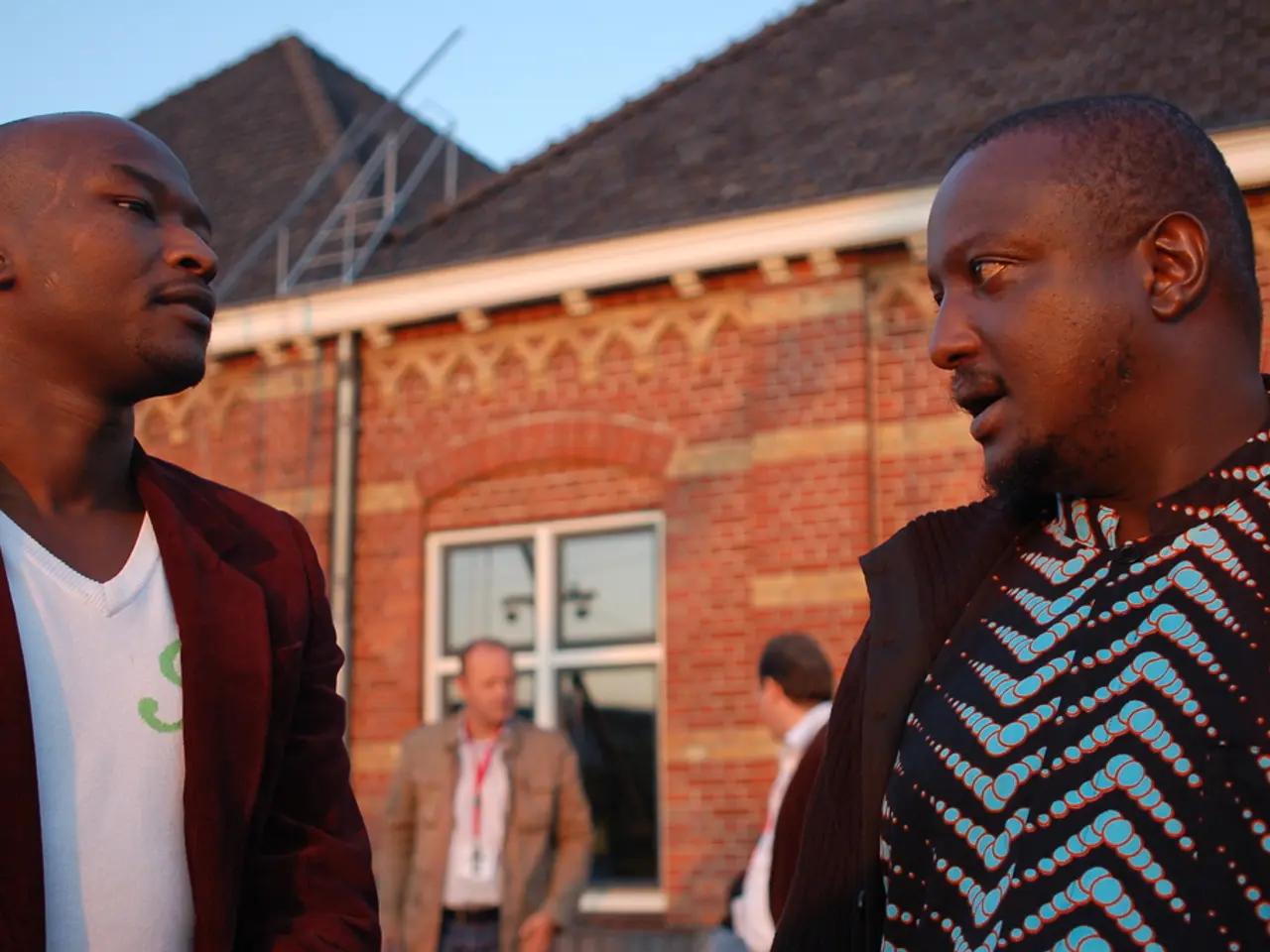Court halts 54gene's asset auction, with founder alleging misconduct by investors
Dr. Abasi Ene-Obong, the founder and CEO of 54gene, a Nigerian biotech startup, is embroiled in a legal battle with two of the company's largest investors - Cathay AfricInvest Innovation Fund and Adjuvant Capital. The dispute centres around allegations that the investors forced 54gene into bankruptcy, removed Ene-Obong as CEO, and attempted to sell the startup's assets without proper oversight.
The crux of the conflict revolves around a proposed loan facility, the conditions of which included a new board chair, a $50 million valuation, a 4x liquidation preference, loss of veto rights for common shareholders, and securing the loan against all of 54gene's assets. Ene-Obong claims that he secured a $200 million pre-money valuation and $80 million in investment commitments, but the company's board blocked funding.
Once valued at $170 million, 54gene shut down in 2023 amidst controversy over internal power struggles, failed fundraising, and disputed governance. The legal conflict also highlights concerns over the attempted sale of critical assets, including a $3 million biobank containing genomic data from 100,000 Nigerians, an important national resource.
The Nigerian Federal High Court has intervened, granting an injunction that blocks the sale of 54gene’s assets. This ruling prevents the dissolution of 54gene and safeguards its assets amidst allegations that the investors manipulated the company's valuation and sidelined the board during these decisions.
The dispute stems partly from the company's financial troubles following a failed pivot from COVID-19 testing to molecular diagnostics, which investors insisted on addressing through a $100 million Series C round that Ene-Obong opposed as unfeasible.
Ene-Obong's allegations against the investors include sidelining the startup's board, making decisions on behalf of 54gene, rejecting a $110 million rescue package, threatening to spread rumours of a fraud investigation against him, forcing the Nigerian operating company into bankruptcy, and rejecting his offer to buy them out.
Cathay AfricInvest and Adjuvant Capital have not responded to requests for comments. After Ene-Obong left the company, the investors provided a $2.4 million loan instead of the promised $3 million. Ene-Obong's buyback offer for 54gene was initially accepted but later rejected after he refused to wire $100,000 in cash without contingencies.
The reconstituted board's decision to sell 54gene's assets risks placing sensitive genomic data of Nigerians in the hands of the highest bidder, raising national security concerns. The court case promises to shed light on the complexities of founder-investor relations and ethical considerations in the biotech startup ecosystem in Africa.
[1] TechCabal, "54gene founder, Abasi Ene-Obong, accuses investors of orchestrating collapse," 2025. [Accessed 2025-08-01]. [2] Ventures Africa, "54gene Founder Accuses Investors of Forcing Bankruptcy, Selling Assets," 2025. [Accessed 2025-08-01]. [3] Business Day, "Court blocks sale of 54gene assets," 2025. [Accessed 2025-08-01]. [4] TechCrunch, "54gene founder takes on investors in legal battle," 2025. [Accessed 2025-08-01]. [5] Techpoint Africa, "54gene founder accuses investors of orchestrating collapse," 2025. [Accessed 2025-08-01].
- The investors, Cathay AfricInvest Innovation Fund and Adjuvant Capital, are accused by Dr. Abasi Ene-Obong, the founder of 54gene, of forcing 54gene into bankruptcy and attempting to sell its assets without proper oversight, including a $3 million biobank containing genomic data from 100,000 Nigerians.
- Ene-Obong claims that he secured a $200 million pre-money valuation and $80 million in investment commitments, but the company's board blocked funding, which led to the startup's shutdown in 2023.
- The legal conflict also raises concerns about the ethics of business and technology, particularly in the biotech startup ecosystem, as sensitive genomic data of Nigerians may be placed into the hands of the highest bidder if 54gene's assets are sold.
- The Nigerian Federal High Court has granted an injunction that blocks the sale of 54gene’s assets, safeguarding its assets amidst allegations that the investors manipulated the company's valuation and sidelined the board during these decisions.
- The dispute between Ene-Obong and the investors may shed light on the complexities of founder-investor relations, ethical considerations in the biotech startup ecosystem, and the potential impact on the nation's lifestyle, finance, business, technology, and mobile industries.




